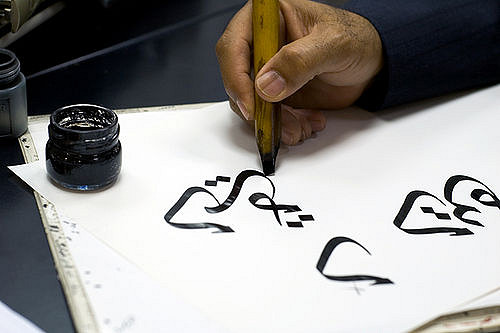
Arabic 101 For Egypt Visitors
If you’re planning to travel to Egypt but can’t speak a word of Arabic I have some good news and bad news for you.
Bad news first: Arabic is HARD. There’s a completely different alphabet, phonetic sounds with no equivalent in the English language, and words that change their meaning completely with just a slightly different accent on the pronunciation (I can’t tell you how many times I’ve asked someone where is their “pigeon” when I’ve meant to ask where to find a bathroom). In fact, Arabic regularly takes the silver in lists of hardest languages for English speakers to learn.
But have no fear, there’s some good news, too! Egyptians tend to recognize their language is tough, and for that reason they are often 1) very forgiving about horrible pronunciation and 2) really psyched to hear visitors try to use it!
More Good News
English is fairly widely used and understood in Egypt. (French, also, is quite commonly spoken and understood.) People working in the tourism industry – in hotels, restaurants, big stores and stops, etc. – tend to speak fluent or nearly- fluent English. Taxi drivers, small shop owners, and everyday people on the street generally speak at least a little English, and are often keen to take advantage of the opportunity to brush up on their skills (sometimes to the detriment of would-be Arabic learners!)
Keeping all that in mind, here are some useful Egyptian Arabic words and phrases to practice before you travel!
*I’ve tried to spell these words as phonetically as possible. note u= elongated “oo” sound, o = long vowel o-as-in ‘boat,’ a is a flat and non-nasal sound like the vowel sound in ‘saw,’ and an Arabic ‘h’ gets enunciated harder than an English ‘h’ — but not so hard as the almost-spitting-in-the-back-of-your-throat ‘kh’ sound!
We recommend this book to learn Egyptian Arabic which is commonly understood all over the Middle East
As-salamu alaykum
This is the typical Egyptian greeting. Respond with Wa alaykum a-salam.
Ma asalama
The typical Egyptian goodbye…though “bye-bye” works, too!
Coming or going, Arabic speakers are literally wishing peace (salam) upon one another. So, even if you can’t remember the whole phrase, a wave and a smile with salam on its own generally gets the point across.
Speaking of gestures of greeting…
Egyptians also usually greet one another with the “double kiss” on either side of the cheek. (Well, it’s not an actual kiss on the cheek … more like the air next to the cheek as the cheeks touch). Men greeting men and women greeting women do this; men and women normally don’t greet each other this way unless they already know each other very well.
You – as a foreigner – won’t be expected to “initiate” this type of greeting, and will also be able to get away with just a handshake … But if someone greeting you leans in for the double-kiss, be prepared and save yourself from that awkward moment when someone moves in for the typical kiss and you only go in halfway for a handshake, realize at the last second what’s about to happen, move in a bit closer to maybe try the kiss, panic, abort mid-gesture, and leave the other person awkwardly standing there. (Again, another situation I’ve found myself in more times than I’d care to count!)
Welcome: Ahlan wa sahlan
Hospitality is so ingrained into Egyptian culture that ‘welcome’ is extended as often as ‘hello’ in a typical Egyptian greeting. Foreigners can expect to hear ‘welcome to Egypt’ walking down the street, getting into a car, entering a store or restaurant. It will follow you everywhere! People who know no other English phrase still know how to say ‘welcome to Egypt,’ and say it ALL the time, so it’s only fitting to learn the reply in Arabic!
If someone tells you Ahlan wa Sahlan (welcome to Egypt in Arabic), reply Ahlan Beek to a man or Ahlan bee –kee to a woman. They’ll be over the moon!
Make Sure to Learn
Shokran
Shokran means thank you. (The reply to it is Afwan – you’re welcome). But besides using it to show off your good manners, if said resolutely, shokran is also a very useful way of politely but firmly refusing when someone is pestering you to buy, look, eat, or take something you don’t really want. You’ll quickly learn that, especially for the street vendors, any refusal in English is generally taken as an invitation to continue to engage with you. On the other hand, a firm shokran tends to send the disinterested message faster.
InShahAllah
Next to shokran, and “welcome to Egypt”, you’ll probably encounter this phrase more than any other in Arabic. Expect to hear it when asking about meeting times or opening/closing times (we will be back at 3 o’clock, inshahAllah); how long it will take to get from one place to another (only an hour, inshahAllah); if a car is travelling in the right direction (yes, we are going the right way, inshahAllah)… really with any sentence where the verb is conjugated in the future tense.
This phrase literally translates to something like ‘if God is willing,’ which can be a beautiful recognition and reminder of how the Divine can permeate and be recognized in all aspects of everyday life. But there’s a joke that says these words are actually akin to a passive, Arabic ‘no’ – as in, ‘don’t be ridiculous, this thing you want can never happen, but I’m too polite to say so.’
Directions
Yameen meaning Right
Shemal meaning Left
Alatool meaning straight
henna meaning here
heNEK meaning there
Frequently Heard
Mashi (or just ‘mesh’) meaning: ok/that’s fine
Izayak? (to a man) / Izayik (to a woman) meaning: How are you?
Qwayes meaning: good
Tamem / Kolo Tamam meaning: fine / everything’s fine
Shweya meaning: a little (often used twice, as in shweya shweya)
Kateer meaning: a lot
Kefeya meaning: enough
Khalas meaning: enough or stop (can be said with a bit of force if the polite “shokran” from earlier hasn’t worked)
Numbers
This is just a guide for the curious and the over-achievers! Have no fear: prices and currency are generally labeled with Arabic numerals and … well, the Western version of Arabic numerals (remember to thank the Arabic-speaking world for the numbering system as we know it!)
٠ 0 Sifr
١ 1 waaHid
٢ 2 ithnaan
٣ 3 thalaatha
٤ 4 arbaa
٥ 5 khamsa
٦ 6 sitta
٧ 7 sabaa
٨ 8 thamaaniya
٩ 9 tisaa
١٠ 10 aashara
Egyptians are passionate and expressive, and may sound like they are arguing with one another – even if they’re just having a normal conversation. Keep that in mind as you use your new, Arabic vocabulary. Don’t be timid in Arabic — speak with gusto!
Related Posts
- First Time Cairo: All You Need to Know
- 10 Funny Facts About Egyptians That You Must Know
- How to Enjoy Cairo in 48 Hours
We hope you really liked this blog post, as much as we enjoyed putting it together. If you want to ask us any questions, or engage with other people, join our Facebook group here.
A win-win situation alert: If you book through the links & banners mentioned in this post, we will get a small commission from these sites -you won’t be paying any extra money-, which will help us maintain and grow this site. See, it’s a win-win situation; you’ll travel, and help us finance our travels.
Disclaimer: Whynotegypt.com is a participant in the Amazon Services LLC Associates Program, an affiliate advertising program designed to provide a means for sites to earn advertising fees by advertising and linking to amazon.com, amazon.co.uk, amazon.ca. Amazon and the Amazon logo are trademarks of Amazon.com, Inc. or its affiliates.
Leave a Reply
You must be logged in to post a comment.
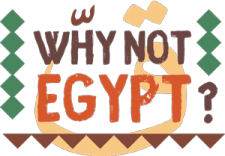
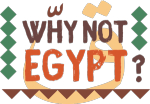



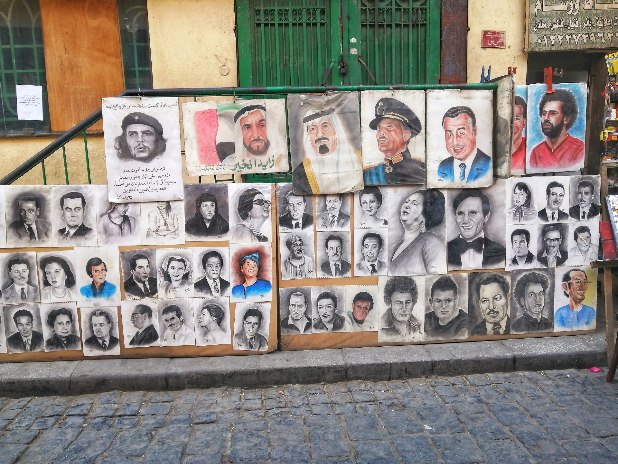
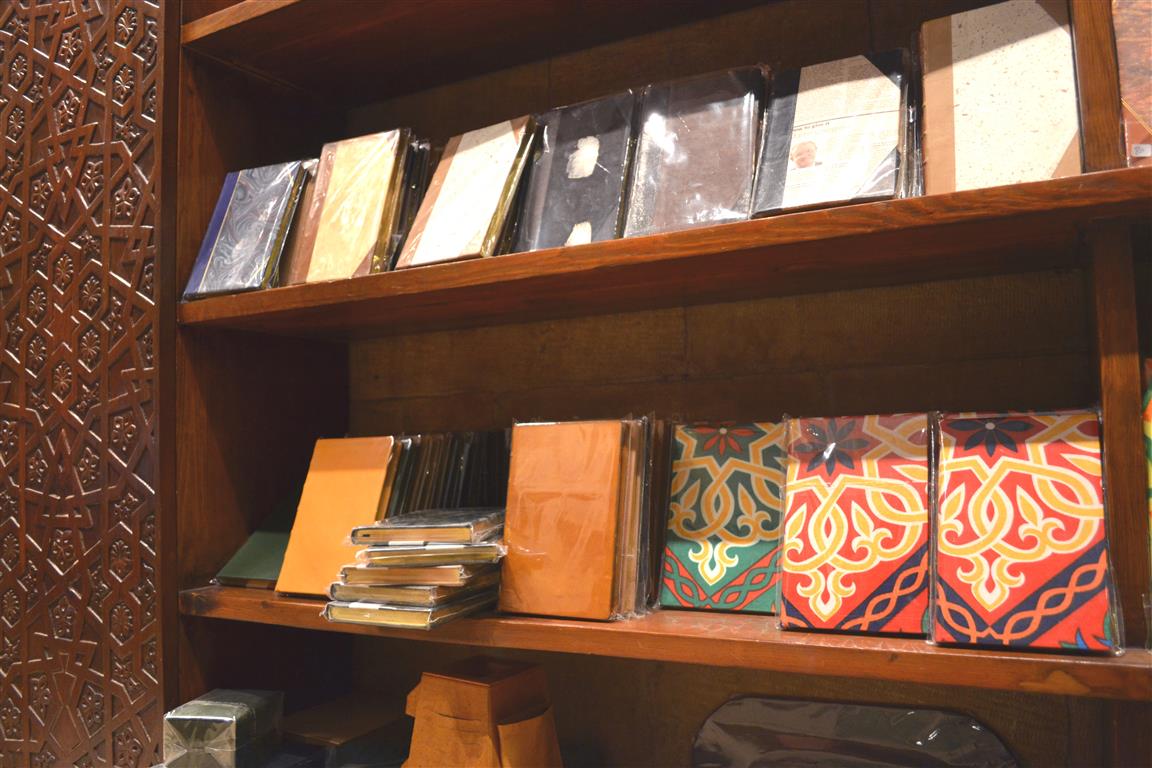
Pingback: Volunteering Opportunities in Egypt | Why Not Egypt?
Pingback: What to Wear in Egypt: A Guide to How to Dress | WhyNotEgypt?
Pingback: 9 Reasons to Choose Egypt Over Any Other Country | Why Not Egypt?
Sarah
Hello,
Do you have any tips for learning Egyptian Arabic or do you know of any sources that are worth it?
I found some sources and I met an Egyptian man from Hurghada, I would like to better communicate with his family members in their native language…
Have you heard of these sources before? StackArabic.com, eArabic or Alif Arabic?
Have a good day,
Sarah
admin
Hey Sarah,
Thank you for getting in touch.
In fact, I don’t know as I’m an Arabic native speaker, and Christina who wrote the article doesn’t live in Egypt anymore, so I don’t have solid advice on how good/bad these courses are and which one to recommend, it’s very hard for me to judge if an Arabic course is good or bad as it’s my mother tongue 😀
Sarah
I left a reply a day ago
Which Egyptian Arabic Course is the best for learning? is it StackArabic, eArabic or another one?
Good day,
Sarah